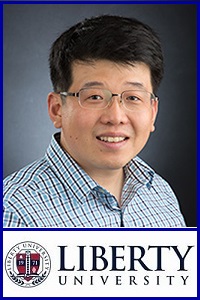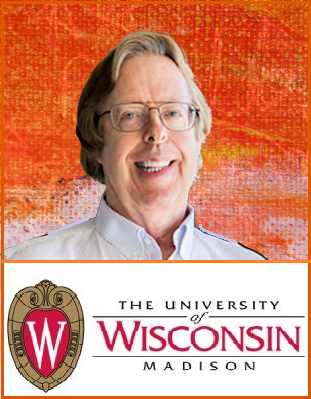Tagged: “Forgiveness Process”
Take the Long Perspective When It Is Difficult to Forgive
Think about one time in your childhood when you had what seemed to be a serious disagreement with a friend. At the time, did it seem like this breach would last forever? Did it? How long did it take to either reconcile or to find a new friend? Time has a way of changing our circumstances. This is not to advocate a kind of passive approach to life here—such as, “Oh, I’ll just wait it out and not bother to exert any effort.” That is not the point. The point is to take a long perspective so that you can see beyond the next hill to a place that is more settled and the pain is not so great. You already saw in your childhood that conflicts end. And the consequences of those conflicts (feeling sad or angry) also end. Why should that same process of change not also apply now? Try to see your circumstance, as realistically as you can, one month from now. Try to see your circumstance six months from now. Try to see yourself two years from now. Will you be the same person? Will you respond to injustices in the exact same way as you did three months ago? Probably not. You will likely be able to meet challenges with greater strength and wisdom as you continue on the forgiveness journey.
Enright, Robert. 8 Keys to Forgiveness (8 Keys to Mental Health) . W. W. Norton & Company. Kindle Edition.
A School Anti-Bullying Program That Works!
No one argues about the need to stop bullying in schools. Bullying’s adverse effects not only impact the child when the bullying occurs but typically impact a victim’s health and emotions throughout the person’s lifetime (see “The Impact of Bullying” box below).
That reality has become a growing topic of concern in the academic community with bullying being cited as a universal problem in countries around the world. Over the past several decades, literally hundreds of school-wide anti-bullying programs have been developed and implemented. That raises the question, of course: Do school antibullying programs work?
The typical answer from those professionals studying that question is: “Not so well. We need to do better.”
And sure enough, that’s the inauspicious conclusion of a just-completed systematic review of scientific publications covering the past 20 years. According to the study, Whole‐school Antibullying Interventions, a full 50% of all the school programs reviewed failed to “show significant effects on bullying prevalence” or found negative results including an actual increase in bullying.
The study, published in April by the peer-reviewed journal Psychology in the Schools, was conducted by university researchers in Brazil. While their study found that anti-bullying interventions resulted in increased reporting of bullying occurrences (with resultant increases in the use of punitive discipline), at the same time many of the programs failed totally–primarily due to inadequate time for training and implementation as well as lack of support.

Dr. Jichan J. Kim
Those findings come as no surprise to many psychologists. In fact, the report actually documented and reinforced what educational psychologist Dr. Jichan J. Kim first reported more than four years ago in his University of Wisconsin-Madison doctoral thesis: The Effectiveness of a Forgiveness Intervention Program on Reducing Adolescents’ Bullying Behavior.
Dr. Kim’s thesis includes a 29-page literature review in which he documents the unusually large number of research projects demonstrating the ineffectiveness of most school-wide anti-bullying programs including:
- A 2007 review of 45 separate school-based anti-bullying studies involving 34,713 individuals that concluded “the positive changes were too small to be supported as significant;”
- Another 2007 examination of 16 major anti-bullying programs across 11 different countries that showed mixed results with less than half the programs demonstrating desirable effects;
- A 2008 evaluation of 16 studies across 6 nations involving a total of 15,386 K-12 students that showed the interventions tended to influence students’ attitudes and self-perceptions but not their bullying behavior; and,
- Studies completed in 2012, 2014, and 2015 (one involving 560 school psychologists and school counselors) supporting the lack of evidence-based interventions.
Despite all the negative assessments he uncovered, Dr. Kim believes there is one approach that might be effective–helping adolescents exhibiting bullying behavior to forgive those who have offended them in the past. That approach, Dr. Kim says, is still not widely used and is, therefore, still not a compelling component of the scientific literature although he is confident it “can be beneficial.”

Dr. Robert D. Enright
That intervention approach, in fact, is the one advocated in The Anti-Bullying Forgiveness Program developed more than 8 years ago by Dr. Robert Enright, founder of the International Forgiveness Institute. The program not only incorporates lessons-learned from Dr. Enright’s more than 40-years of forgiveness research, it also integrates the scientifically-quantifiable forgiveness process he developed and , perhaps most importantly, it focuses directly on the one doing the bullying.
“Those who bully usually have pent-up anger and as a result they displace their own wounds onto others,” Dr. Enright explains. “Our program is meant to take the anger out of the heart of those who bully so that they no longer bully others.”
Dr. Enright says his research has taught him to take an approach that may seem counter-intuitive today, but will appear obvious to many in the future: “Yes, help the victim, but also help the one who is bullying to get rid of his or her anger, which is fueling the bullying. Those who bully have been victimized by others. Help them to reduce their resentment toward those who were the victimizers and the bullying behavior will melt away.”
- Learn more about Dr. Enright’s Anti-Bullying Forgiveness Program.
- Learn more about Dr. Jichan Kim, an Assistant Professor of Psychology at Liberty University in Lynchburg, VA. (Disclosure: Dr. Enright was Jichan Kim’s graduate school adviser).
- Read a review of Forgiveness Therapy.
- Learn more about the long-term impacts of bullying in the 2014 British Study.
- Learn how bullying statistics compare in your state versus others, with this interactive Bullying-Cyberbullying-Sexting Map of the U.S.
- Learn about bullying and cyberbullying in your country with this interactive International Research on Bullying Map of the World.
Would implementing IFI’s forgiveness therapy in Police Departments help with racism, police brutality, domestic violence and suicide in the police community? If so, how would IFI recommend police get forgiveness therapy into their departments?
All organizations are made up of imperfect people. Therefore, any organization will have its share of unjust treatment by others outside the organization and toward people both outside that organization and within it. Those organizations that have much more stress than others, such as the police and the military, probably could benefit from forgiveness workshops. Why? If people in these organizations are abused by others, learning to forgive can quell the anger so that the anger is not displaced onto others. If people in the organizations abuse others, then the first step is to exercise the moral virtue of justice and make right that which was wrong. Asking for forgiveness is delicate because those hurt by the injustice may need a time of anger or sadness and therefore are not necessarily ready to forgive. Another step, once justice is restored, is learning to engage in self-forgiveness, which is important to avoid self-hatred. We have given workshops to military organizations and to those in the criminal justice system, but not yet to any police organizations, only because we have not been asked yet.
I suffer from chronic anxiety. Will this alter how I go through the forgiveness process relative to those who are not suffering in this way?
Sometimes our anxiety comes from not feeling safe. Sometimes our not feeling safe emerges when others treat us unfairly. In other words, you may be expecting poor treatment from others now, even those who usually are fair.
A first step may be to think of one person who may have hurt you and at whom you still harbor resentment. You can forgive through the exact same pathway as described, for example, in the book, Forgiveness Is a Choice. With anger lessened, anxiety can diminish. Of course, this will vary for each person. We have to be gentle with ourselves as we learn to forgive, to give up anger, and to know with some confidence that we can meet the next interpersonal challenge with forgiveness, helping us to meet these challenges with less anxiety than in the past.
For additional information, see Learning to Forgive Others.
I was hurt in a 5-year relationship and now I am hesitant to get into any other relationship. Does this lack of courage on my part suggest that I have not forgiven the one who hurt me?
The issue here seems to be one of a lack of trust. You may or may not have forgiven the one with whom you were in a relationship for the 5 years. Even if you have completely forgiven, you still may lack trust and this is not a sign of unforgiveness. It is a sign that you know hurt is possible when you commit to others. Forgiveness can help with taking the risk and at the same time your using common sense in the new relationship, along with sincere acts of trustworthiness by the other, should help to slowly create a trust with the new person.
Learn more at Forgiveness for Couples.



